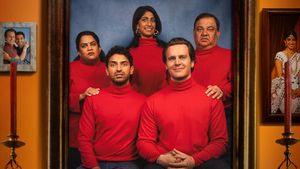Dear Ed, It's been nine months since I
was laid off from my job as a flight attendant
with a major airline. High jet fuel prices and
air-carrier bankruptcies have put many of my
fellow colleagues out of work. Having to live on
unemployment compensation in San Francisco (an expensive
town to live in) is just not doable.
Although I've been actively participating in
finding new employment, the responses to my
resume by potential employers have been few,
and there have been no subsequent interviews
whatsoever. Disheartening, to say the very least.
What does a flight attendant of many years do when the
plane gets grounded? Recently the answer to that
question has been to rethink the plan in
unconventional terms and begin to consider
unconventional alternatives. Which leads me to
write you about what has been my passion in life: cooking.
As a lifelong hobby of mine, preparing meals for others
has always been my source of solace. In fact, I
now turn to cooking as a way to keep me out of the
depths of depression and desperation over my employment
situation. My partner and our friends have always
recognized my cooking gifts and talents and
remarked that I missed my calling in life. Seeing
their point, I've now decided to investigate the
option of going to a Bay Area cooking school and
becoming a chef. I would really like to hear from
you and get your feedback on a career as a chef.
Thank you, Iron Chef
Dear IC,
Starting out from a place of passion is always a big plus
when considering the next steps along one's
career pathway. The fact that throughout your life
those around you have recognized your gifts for the
culinary arts is confirmation from the universe that these
talents for cooking are in fact a part of you.
Now, if you can
stand the heat in the kitchen, you've got it made in
your new career as a chef.
My suggestion for
you is to try your best to get into a recognized
certification program from a four-year cooking school.
Depending on your reasons for wanting to attend a
school in the Bay Area, you may want to reconsider:
See if the Culinary Institute of America
(https://www.ciachef.edu/) will accept you as a student.
The Institute has
a reputation internationally as, by far, the premier
U.S. culinary school, and it now has a West Coast campus in
St. Helena, Calif. After graduation many of the
Institute's alumni go on to become head chefs
at high-end eateries around the world. A chef's
income varies greatly, depending upon prior experience
and position level--that's why
it's important to graduate from a recognized cooking
school such as the Institute. An aspiring chef must
spend four years at an accredited cooking school,
followed by at least another four years of working under
a head chef as an apprentice.
The better
schools such as the Institute will want you to have some
culinary arts background--such as a kitchen support
staffer doing vegetable and meat preparation.
You'll have no problem finding such work in the
fantastic restaurants in the San Francisco metropolitan area
and the Napa-Sonoma-Mendocino wine country. Your first
aim is to become a sous-chef at one of the better
restaurants under a top name who can serve as a
mentor. Depending upon your success in finding the right
mentor, you can expect to become head chef or open
your own restaurant within 10 years.
It's a
well-known fact that kitchens are places of high stress and
fatigue. Unless you work in a corporation's executive
dining room during the day, restaurant hours are odd
and long. Chefs go to work well before the oven gets
turned on just to do inventory and prep. Once the operation
is in full swing, the pace is frenzied and the tempers are
turned up.
Despite the
downside (which every occupation has to a degree), most
chefs who are passionate about their work will tell
you that it is the most rewarding thing they can dream
of doing in life. Why? Because it's creative
and they view themselves as true artists. And you know what?
Being a gourmand myself, I would have to agree with them.
Dear Ed, My partner and I are always at it
over whether a graduate degree pays off in
one's career. My partner holds a
bachelor's degree, and I have a
master's. Although I make more in salary, I still
have student loans to pay off, which my partner
doesn't, so we come out even at the end of the year.
The bone of contention between us is that I'm
considering a doctorate program for 2006, which my
partner is dead set against me doing. Some of the
financial logic behind our debate is understandable;
however, I still feel educational advancement is a
plus to one's career initiatives--or am
I just that perpetual-student spoiled brat I'm
sometimes accused of being?
Thanks, E=MC2
Dear E=MC2 Understandably, taking on additional financial
obligations can cause strain in any relationship. The
most I can offer you are the hard facts surrounding
the income levels for degree holders like yourself.
Let's refer to the most recent U.S. Census data
(from 2004), which compiled the following numbers
regarding the median annual incomes of Americans by
educational level. A median income is not an average, which
might be higher because of super-high-earners in each
category. A median is the number at which half the
people in that category earn more and half earn less:
Education level
Median annual income
Less than high
school $21,600 High school diploma $30,800
Some college credits $35,700 Associate's
degree $37,600 Bachelor's degree
$49,900 Master's degree $59,500
Doctorate degree $79,400 Professional degree
$95,700
You can see for
yourself that whatever a doctorate degree will cost you,
it may pay back you even more in the long run of your
career. Given the jump in median income from a
master's to a doctorate, I wouldn't
necessarily be fearful of taking on another student loan.
What I'm
advising is to include your partner as well as third-party
opinions in your ultimate decision. Perhaps a talk with your
accountant or financial adviser would be a wise move
to help both you and your partner handle this
decision, which will impact both of you and your
combined lifestyle. Educate yourself before you educate
yourself.


















































































